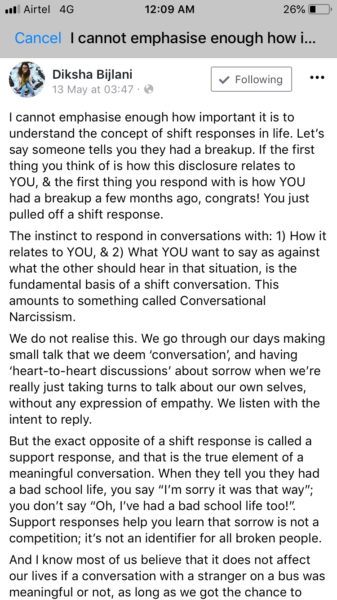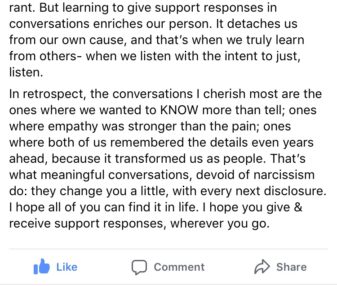
As life progresses, one of the factors that gets increasingly present in our daily lives is ED (Emotional depth… I know, you laughed – maybe twice, depending on which headlines you’ve been reading). I do not know if Emotional Depth is a real term, yet it seems to describe a feeling I have.
As I started to write this post, I immediately remembered this tweet from @kshashi where he talks about what unleashes the wrath of toddlers. “Breaking roti in pieces when he wants it full” stuck with me. Maybe all of us remember a moment from our childhood when we cried over something that now seems either silly or common.

Last week, my 6 yo nephew in Bangalore cried and created a bit of a ruckus (only a bit, he is daring for the most part) when he saw his parents playing a game of Catan with some friends when he returned from his class. His demand was that they need to play two games of Catan with him on the same day! My bhabhi explained to him on the lines of… “seeing your family happy and having a good time should make you happy instead of thinking that you lost something…”
Read More


